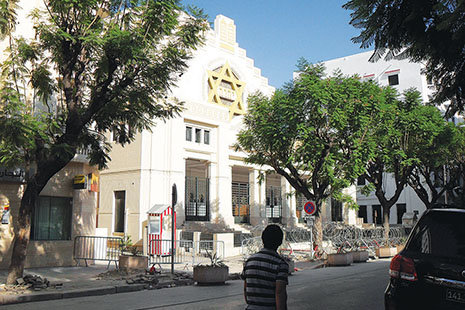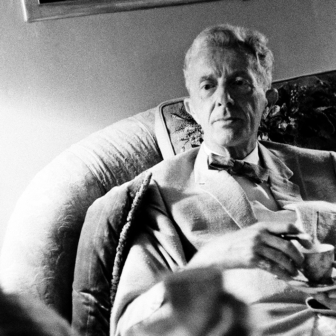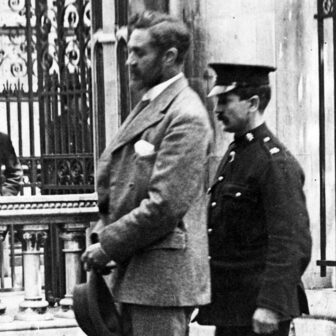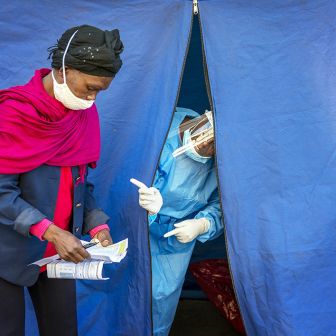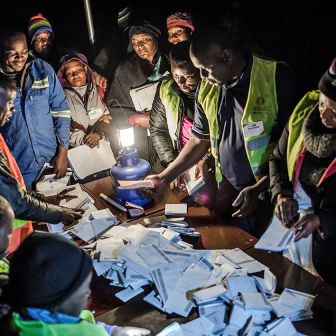THE YOUNG woman posing for a photo is wearing a hip pair of sunglasses and light summer clothing. Behind her, in the shade of the trees that line Avenue Habib Bourguiba, is a convoy of police vans. She smiles and makes a peace sign as her friend takes the shot, then turns and waves to the police officer sitting in the first van with his heavy black boots up on the dashboard. He smiles and waves casually as the women walk off.
It’s hard to believe that just six months ago this was the site of massive popular demonstrations. It took protesters less than three weeks – sixteen days, Tunisians will tell you – to topple a dictator who had been in power since 1987. President Zine el-Abidine Ben Ali fled the country on 14 January, the first extraordinary event in what has come to be known as the Arab Spring.
A first round of elections has been scheduled for October. But the future is anything but certain, as recent violent clashes in the town of Sidi Bouzid, the source of the uprising in December last year, have shown. In Tunis itself, soldiers are still visible on many street corners, sometimes guarding barbed-wire barriers that block access to important government buildings. Just next door to the Bourguiba Institute, where I have come to take an Arabic course, the main synagogue is shut up behind a barricade of concrete blocks and road spikes. “To prevent a terrorist attack,” one of the soldiers on guard explains. Further down the street, the state radio building has also been fenced in, and an armoured vehicle is parked in its shadow in a side lane.
Despite the uncertainty, it is hard to find anybody who will speak of the revolution with anything but optimism and a modest pride. When news of the fall of Ben Ali reached one of my hosts, he left his well-paying job in Dubai to come back and take part in building a new country. “This is the first time in human history,” he tells me, “that a revolution has been about human dignity. Not about food shortages, not about politics, but dignity.”
There is an understanding, too, that what has taken place here is part of something much larger. It is a phenomenon that Sinan Antoon, an Iraqi poet, has suggested might be a new form of Arab nationalism, one which is in no way related to the Arab nationalism of the 1950s and 60s personified by the former Egyptian leader, Gamal Abdel Nasser. Instead, it reflects an awareness of a shared history and culture, facilitated by new information networks. An older man who comes up to talk with me in a cafe tells me that “Arabs are, in fact, very organised. We invented science, we invented algebra. Algebra is an Arabic word! We knew things about the moon that NASA confirmed one thousand years later. But our leaders have seeded disorder to stay in power. Now they must rely on Western intelligence reports to understand their own people, and they are scared!”
Most of the buildings in central Tunis are only a few storeys high, but the city rears up like a wave at its north-eastern fringe. The Avenue Mohamed V is lined with palm trees and the glassy high-rises of the country’s banks. From the top of these towers you can look at the whitewashed buildings of the old city centre, or over the tide of suburbs to the north-east that stretches all the way to the historic site of Carthage and the tourist beaches of the Mediterranean coast.
Heading out into these suburbs, I saw an impressive amount of activity on building sites despite the baking heat. In the construction sector at least, it looks like business as usual. But the economic statistics tell a different story. A recent article on Al Jazeera’s website estimated the cost of infrastructure damage and the drop in tourism at around 5 per cent of GDP, and foreign investment has fallen by 25 per cent since the beginning of the year.
These statistics represent an economic and political time bomb given the chronic unemployment, particularly among well-educated youth, which was one of the causes of the protests. Tunisia, with a population of around eleven million, is already struggling to accommodate some 250,000 refugees who have fled the war in neighbouring Libya. Analysts have also attributed much of the drop in foreign investment to the uncertainty surrounding the outcome of the NATO-led Libyan intervention. Should the situation there remain unstable, the flight of international capital may prove to be just as significant for the future of this fledgling democratic state.
Back at the Bourguiba Institute, enrolments are down. Normally, its intensive summer Arabic courses attract some 500 students from all over the world. This year, only half that number have come. Yet there is no hint of stress among the teachers and staff who, just like everyone I have met here on the streets in Tunis, are welcoming with a kindness bordering on affection.
For the moment, it seems to be enough to have taken part in an extraordinary historical event, and there is a sense that anything can be achieved. On my first day at the institute, I had a few difficulties enrolling. Despite being constantly bombarded with requests in three different languages, the director of the institute took the time to sit down with me and sort out my problem. At one point, he shot me a smile over the wall of enrolment forms and folders on his desk. “Everything will work out,” he said, and winked. “This is the Tunisian Revolution!” •
